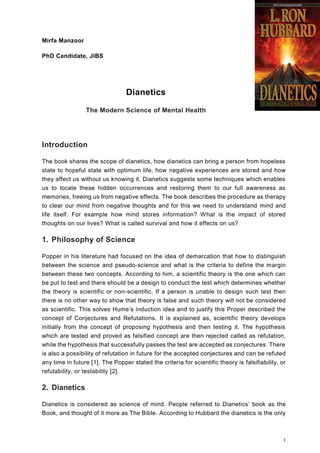The Of Dianetics
The Of Dianetics
Blog Article
The Buzz on Dianetics
Table of Contents6 Easy Facts About Dianetics DescribedIndicators on Dianetics You Should KnowThe Dianetics DiariesThe Buzz on Dianetics
I could not ever before not want to obtain anything that enters your mind for you- if it was or else, I would not be sitting below with you, doing this. I not just might never ever have a trouble, or otherwise intend to listen to something that enters your mind for you, but I'm entirely anxious to understand every concept, every idea, every photo or sensation that emerges or manifests for you- do not ever think or else, and if for some reason you do, please simply let me recognize! Occasionally, you may have an idea, and image, concept or occurrence turn up that does not seem to address the inquiry, or relate to it, yet nonetheless, always do inform me concerning it, and as we proceed, the significance will certainly arise for you.This is intrinsic in the basis of processing, and the topic of this discussion: the basic functions of the therapist and the client: The basic duty of the counselor is, in contrast to "typical training", not to manage, which indicates to enforce and/or prevent, however to rather function from the basis of EMPOWERING THE CLIENT.

The Main Principles Of Dianetics
John Mcmasters shared this standard fact splendidly well in one of his lectures on Power handling, in which he discusses how he was asked what this "unique propensity" was that he had for offering such excellent sessions; he needed to believe about that for a moment, and found that it was what he had not been doing, along with what he was doing: he wasn't evaluating, judging, computing, or actually, creating any kind of ideas, allow alone verbal expressions, after offering the command and while waiting for the computer to complete their response to their satisfaction; he was, merely and only, being existing with the PC, and entirely interested.
The role of the counselor, demonstrated; that was his "special knack". I have had my own experience which instructed me this well, very early on in the game. In 1982, having actually lately completed my training and teaching fellowship on New Period Dianetics, I was running this on a PC, and there was a factor in the session where (being a little bit damp behind the ears not yet having lots of hours under my belt as a professional auditor) the PC appeared to be "taking also long" to share anything vocally after I provided him a command.
This secret ended up being the most important contribution that John ever made to the topic of therapy or bookkeeping (Dianetics). In my humble viewpoint, it is the biggest contribution that anyone has ever made to these subjectsthe application is totally non-judgemental, non-evaluative, and lacking any suggestion, recommendations or opinion.no preconditioned agenda for individuals, or 'levels' that they need to do
In Scientology we prided ourselves on not assessing for people. All that really suggested link was that the auditor did not Vocally review for the Computer in session.
Fascination About Dianetics

Anybody who had ever seen John audit could not help however see an unique high quality in his auditing."The client's basic role is to be there with the function of relocating the instructions of their spiritual objectives, and to easily and totally share and experience whatever shows up for them in answering the inquiries and executing the guidelines in the handling.
This is something to process as needed. But additionally, people often have prior experience and/or brainwashing in auditing/processing which, in some methods, and to some extent, really misdirects them into attitudes, ideas and informative post behavior patterns that avoid the full awareness of these roles, therefore they will certainly have a tendency to prevent the expressing of what comes to mind, as in the examples given above. * The first, and perhaps primary instances of mis-indoctrination resulting in much less than entirely smooth and reliable sessions, can be discovered in certain facets of the training routines, or "TR's":"TR's" are typically an individual's initial, or at least early, experience in Scientology, and while I will certainly go on to describe what I see as the problems in idea and technique, nevertheless, often tend to be greatly healing, done as they are provided (Hubbard urges that "TR's are not processing, they are educating", yet factually, they are both handling AND training)
There is no "failing", and no denial of the fact of this being handling. The focus, as it should be, is on experiencing the other individual's visibility.
Some Of Dianetics

Report this page